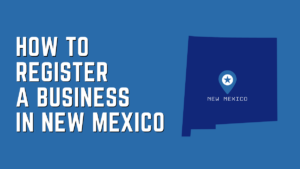Step right into our comprehensive guide on officially registering a business name in the vibrant state of Florida! Whether you’re embarking on a new venture in the Sunshine State or expanding your existing business, you must go through the registration process and secure your brand identity while ensuring compliance.
Thankfully, Florida offers an efficient and direct method for registering various types of businesses such as LLCs, corporations, and “doing business as” (DBA) names.
How to register a business name in Florida? For a seamless experience throughout this crucial process, we highly recommend partnering with ZenBusiness. Their expertise in business registration will help streamline everything from start to finish, allowing you to focus on what truly matters growing your enterprise.
So, let’s dive headfirst into the bustling market of Florida and transform your entrepreneurial aspirations into an extraordinary reality!
>> Get Started With ZenBusiness >>
4 Steps to Register Your Business Name in Florida
How to register a business in Florida? Officially registering your business name in Florida is an important milestone when establishing a presence as an entrepreneur in the state. To accomplish this, follow a straightforward process consisting of four steps.
Step 1: Choose Your Business Structure in Florida
Choosing the right business structure is crucial for establishing your company’s legal identity, personal liability, tax responsibilities, and management needs. In Florida, several options are available, ranging from incorporated to unincorporated structures. Now let’s examine each of these choices in detail and understand how they operate within the state known as the Sunshine State.
Sole Proprietorship
The most common and straightforward business structure for independent entrepreneurs is a sole proprietorship. In this arrangement, the business owner and the business are considered as one entity under the law. It provides a simple setup process with minimal legal and administrative obligations.
However, understand that the owner assumes personal liability for all the company’s debts and responsibilities. While registering your sole proprietorship with Florida state isn’t necessary, you may still need to acquire local permits or licenses depending on your specific industry requirements.
General Partnership
If you have a business with multiple owners who want to share profits, responsibilities, and liabilities, a general partnership might be the right choice. Just like with a sole proprietorship, the owners are personally responsible for any debts or legal obligations the partnership has.
In Florida, it’s unnecessary to register a general partnership with the state. However, if you’re using a name for your business that differs from the names of the partners involved, you may need to file a “Fictitious Name Registration” (also known as Doing Business As – DBA) with the Florida Division of Corporations.
Limited Partnership (LP)
If your business includes active and passive partners, you might consider a limited partnership (LP). In an LP, the general partners assume unlimited personal liability for the business, while limited partners have protection against liabilities up to their investment. To set up an LP in Florida, submit a “Certificate of Limited Partnership” to the Florida Division of Corporations.
Limited Liability Company (LLC)
A Limited Liability Company (LLC) offers the best of both worlds, protecting the limited liability that a corporation provides, along with the flexibility and simplicity of a partnership. This business structure is highly valued for its tax benefits and straightforward management obligations.
Suppose you want to establish an LLC in Florida. In that case, you’ll need to submit “Articles of Organization” to the Florida Division of Corporations and develop an Operating Agreement that outlines how the company will be managed and who owns it.
Corporation
If you’re looking for a unique legal entity that provides limited liability protection separate from its owners, a corporation may be the perfect choice for your business. In Florida, there are two categories of corporations: C-corporations and S-corporations.
C-corporations face double taxation, whereas S-corporations benefit from pass-through taxation. Establishing a corporation in Florida requires submitting “Articles of Incorporation” to the Florida Division of Corporations and complying with additional formalities such as creating bylaws, issuing stock, and conducting regular board and shareholder meetings.
When deciding on the most suitable business structure in Florida, consider various factors, including liability protection, taxation, and management needs. Each structure comes with its own set of benefits and obstacles. Therefore, seeking advice from legal or business experts can be highly beneficial when making such a decision.
After you have made your selection, you can then proceed with registering your business name and begin your thrilling entrepreneurial journey in the Sunshine State. Establish a solid foundation as it paves the way for a prosperous business venture.
>> Register Your Florida Business Name With ZenBusiness >>
Step 2: Select a Unique Business Name in Florida
When embarking on a business venture in Florida, selecting an original business name is a pivotal choice. Your business name surpasses being a mere formality. Its the cornerstone for establishing your brand’s identity and captivating customers.
Within the state of Florida, you possess various avenues for naming your business, each accompanied by its unique set of guidelines and protocols. Familiarizing yourself with these specific requirements applicable to Florida will aid you in maneuvering through the naming process with utmost efficiency.
Legal Entity Name
To officially register your business name in Florida, choose a unique legal entity name. This chosen name will serve as the official identification for your company and should not clash with any other existing businesses within the state.
The state of Florida has established specific regulations when it comes to using company suffixes like LLC, LP, or Corp. It’s important that your selected business name accurately reflects the type of business entity you’re establishing.
To ensure that your chosen name is available and not already taken, it’s recommended to verify its availability through the Florida Division of Corporations’ database before finalizing your decision.
Trademark
Obtaining a trademark for the name or logo of your business offers extensive safeguarding of your intellectual property. It’s vital to conduct a thorough search within the USPTO database to confirm that no one else has already registered the name or logo you desire.
Once your trademark is successfully registered, you gain exclusive rights to use the name or logo in connection with comparable goods or services. This preserves the distinctiveness of your brand identity while preventing others from adopting a similar name that might lead to confusion.
Doing Business As (DBA)
In Florida, there’s the opportunity to operate your business under a different name known as a “Doing Business As” (DBA) name. This allows you to establish a distinctive and memorable brand identity for your customers.
To create a DBA name, file a Fictitious Name Registration (DBA) with the Florida Division of Corporations. Unlike legal entity names, DBAs do not need to be unique at the state level but may still be subject to federal trademark laws.
By weighing these naming options and adhering to Florida’s regulations regarding business names, you can successfully register your business name and safeguard your brand in the dynamic and competitive market of Florida.
Choosing an original business name in Florida not only sets you up for success but also leaves a lasting impact on customers, helping you stand out amidst the bustling landscape of businesses in this state.
Step 3: Check Business Name Availability in Florida
Before you officially register your business, it’s of utmost importance to verify if the name you have chosen is free for use. To accomplish this, carry out three different searches to examine the availability of the business name.
Trademark Search
Trademarks receive protection on a national scale, so verify that your chosen name isn’t already trademarked. If it is, you will need to select an alternative name for your business.
For conducting a federal trademark search, access the website of the U.S. Patent and Trademark Office (USPTO) and make use of their TESS Search tool.
Florida Business Name Search
After confirming that your name isn’t trademarked, the next step is to check its availability in Florida. Use the Florida Department of State Search to examine if there are any existing business names registered in the state.
While conducting your search, confirm the availability of your exact business name and ensure there are no other companies using similar names that might lead to confusion.
Website Domain Search
After verifying that your business name isn’t trademarked and is available for the state of Florida, take an additional step to verify the availability of the .com domain version of your business name. While not every business may require a website, it would be wise to secure the .com domain if it’s possible.
By registering your business name’s .com domain through ZenBusiness, you will have exclusive rights to the website name and prevent others from using it. With ZenBusiness, you can protect your brand at an affordable cost while ensuring that no one else can claim your online presence.
By conducting these thorough searches, you can ensure that your business name is unique, legally accessible, and ready for registration in Florida.
Step 4: Form Your Business With the State of Florida
After you have established the structure of your business and selected a name, the next vital task is to register your business officially with the state of Florida.
To register a Florida LLC, submit the Articles of Organization to the Florida Division of Corporations. This can be accomplished through online submission, mailing, or in-person submission. If you’re establishing a Florida corporation, you must file the Articles of Incorporation with the Florida Department of State.
>> File a Trademark With ZenBusiness >>
You May Also Want to Know
Protect Your Business Name With a Trademark
Once you have confirmed that your business name is available and have secured it, you can choose to seek a trademark. The cost of this process usually ranges from $225 to $400, which includes fees for attorney help and a renewal fee every decade.
Although this may appear expensive, obtaining a trademark offers your business protection across the entire country under federal law. If other businesses try to use a similar name, having a registered trademark will provide you with significant legal leverage. However, for small businesses that primarily operate locally, taking this step might not be essential.
How to File a Florida Fictitious Name – DBA?
To file a Florida Fictitious Name (DBA), follow these steps:
- Select a Name: Choose a distinctive name that’s not currently in use by another Florida business and doesn’t infringe on trademarks or copyrights.
- Name Search: Verify the availability of your chosen name by conducting a name search on the Florida Department of State’s Division of Corporations website.
- Registration Form: Obtain the “Fictitious Name Registration” form (Form DR-1) from either the Florida Department of State’s Division of Corporations website or your local county office.
- Complete the Form: Provide accurate information on the form, including the fictitious name, business address, owner’s name and address, and other required details.
- Notarize the Form: Sign the form in the presence of a notary public.
- Registration Fee: Pay the applicable filing fee for registering the fictitious name. Fees may vary, so consult the Florida Department of State or your local county office for specific details.
- Submit the Form: Send the completed and notarized form, along with the registration fee, to the Florida Department of State’s Division of Corporations or your local county office.
- Publication Requirement: Some counties might mandate publishing a notice of your fictitious name registration in a local newspaper.
- Renewal: Fictitious name registrations typically remain valid for five years. Ensure timely renewal before the expiration date.
Verify the specific requirements in your area by contacting either your local county office or the Florida Department of State.
>> File a Trademark With ZenBusiness >>
How to Change the Name of a Florida Business?
If you ever find yourself in need of altering the name of your business in Florida, there are two methods available to accomplish this. The initial approach involves filing for a fictitious name, also known as a DBA (Doing Business As) name. This permits you to conduct business under an alternate moniker making no changes to its legal designation.
For sole proprietorships and general partnerships, only using a DBA name allows for the adoption of a different business title. Similarly, LLCs and corporations can also use this method to operate under brand names that do not include the required LLC or Inc. suffix found in their legal titles. This option proves helpful as it simplifies business operations without causing unnecessary complications.
Alternatively, if you aim to change the legal name of your LLC or corporation entirely, then filing an amendment for an existing business’s legal designation would be more suitable.
The requisite forms for both options can be obtained: Articles of Amendment for LLCs and Articles of Amendment for corporations may be submitted via mail. The filing fee is $25 for the LLC form and $35 for the corporation form.
>> Get Expert Assistance From ZenBusiness >>
Business Name Registration Laws in Florida
Here are the key aspects of business name registration laws in Florida:
- Name Availability Search: Before officially registering a business name, it’s crucial to perform a name availability search using the Florida Division of Corporations. This ensures that the desired name isn’t already in use by another registered business entity in the state.
- Fictitious Name Registration (DBA): Any business operating under a name different from its owner(s) or corporation’s legal name must register a fictitious name, commonly known as a “Doing Business As” (DBA) name. This requirement applies to various business structures, including sole proprietorships, partnerships, corporations, and Limited Liability Companies (LLCs).
- Registration Process: Business owners can register a fictitious name online through the Florida Division of Corporations website or by applying in person or by mail. Typically, the registration process involves providing the legal name of the business owner(s), the desired fictitious name, and the business address.
- Business Structure Considerations: Different registration requirements and forms may apply based on the business entity type. For instance, a sole proprietorship may need to register a DBA, while a corporation or LLC may need to register its legal business name.
- Renewals: Fictitious name registrations in Florida have a specific validity period, often five years, and must be renewed to remain active. Business owners should know the registration’s expiration date to ensure compliance.
- Name Restrictions: Florida may impose restrictions on certain words or phrases used in business names. Businesses are prohibited from using names that could mislead the public or imply an unauthorized connection with a government entity.
- Legal Consequences: Registering a fictitious name in Florida does not automatically grant trademark rights. Business owners seeking protection for their business name as a trademark should apply for federal or state trademark registration.
- Penalties: Failure to register a required fictitious name or providing false information during the registration process may cause penalties and legal consequences.
To maintain legal compliance and safeguard the reputation of their businesses, it’s imperative for business owners to follow these laws. If you’re embarking on a business venture in Florida or have any inquiries regarding the registration of your business name, it’d be wise to seek advice from an attorney or a competent business consultant.
Please remember these laws can undergo changes as time passes. Therefore, it’s essential to reference the most up-to-date statutes and consult with legal experts or official government sources for the most recent information available.
Bottom Line on How to Register a Business Name in Florida
To wrap up, registering a business name in Florida signifies the start of an exhilarating entrepreneurial adventure in the state known for its sunny weather. It’s crucial to conduct thorough research and handpick a distinctive business name and legal structure that aligns with your vision.
By completing all necessary registrations and considering options such as trademark protection or using a DBA (Doing Business As) name, you establish a strong foundation for your business’s triumph.
How to register a business name in Florida? For additional support and guidance, it’d be wise to explore LLC formation services like ZenBusiness. With your unwavering dedication and ambitious spirit, your registered business name will shine brightly amidst Florida’s thriving business landscape, promising a bright and prosperous future ahead.
>> Use ZenBusiness to Register a Business Name in Florida >>
 Sections of this topic
Sections of this topic
















